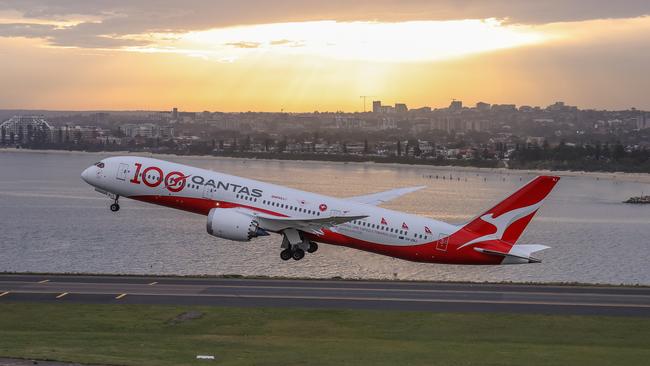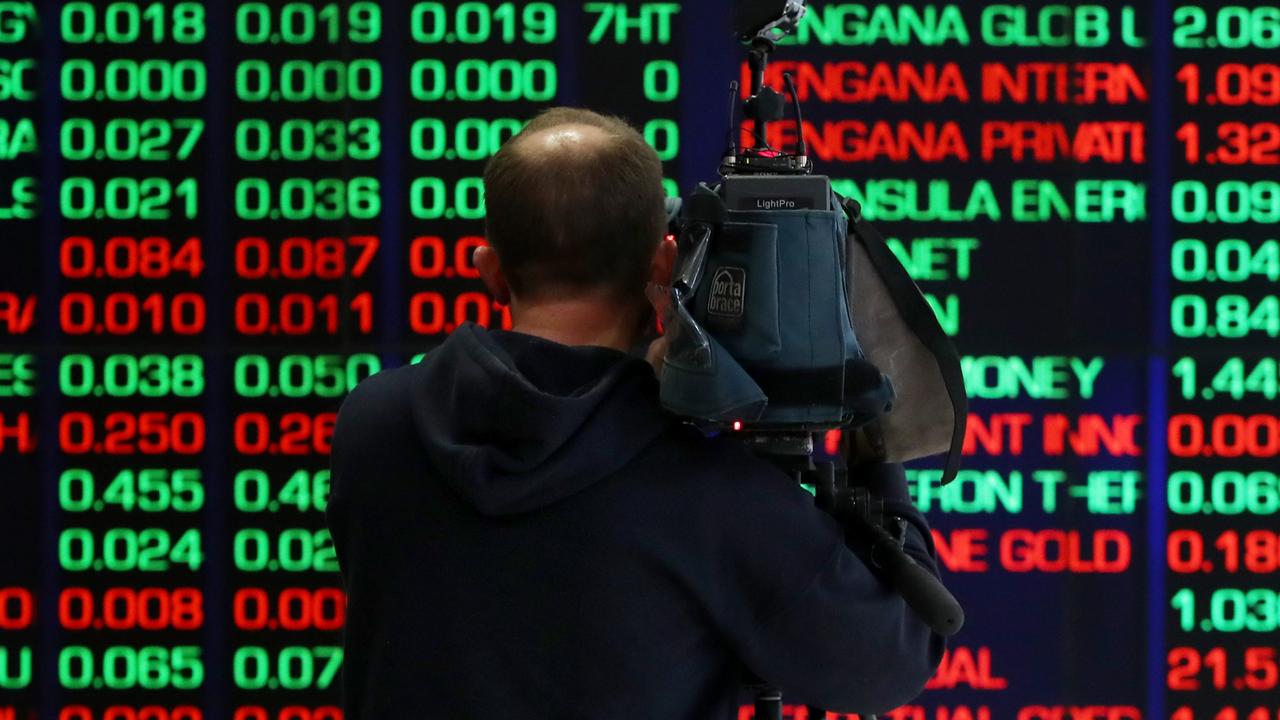Airline funding linked to jobs
Millions of dollars in government funding for Qantas and Virgin Australia is conditional on the retention of thousands of jobs.

Business
Don't miss out on the headlines from Business. Followed categories will be added to My News.
Millions of dollars in government funding for airlines to retain their international capability is conditional on Qantas and Virgin Australia maintaining the jobs of thousands of employees.
Qantas must maintain between 6000 and 7500 employees in its international division, and Virgin Australia 1100 workers, to qualify for financial assistance, budget estimates hearings were told on Monday.
If they met the criteria, Qantas stood to receive between $146m and $174m towards training, and Virgin $25.6m.
Last Thursday Qantas announced it would offer voluntary redundancies to hundreds of international cabin crew, which was likely to reduce the amount for which the airline was eligible.
Carriers were expected to have sufficiently skilled staff to recommence international flying when borders reopened, said Department of Infrastructure, Transport, Regional Development and Communications deputy secretary Christine Dacey.
“I would never tell Qantas or Virgin how many workers they need to retain,” Ms Dacey said.
“(But) come the day the international borders reopen they need to have a fully capable airline to take to the skies.”
Ms Dacey said other assistance programs established in the early days of the Covid-19 crisis were not conditional on employee numbers because of the severe impact travel restrictions and lockdowns were having on airlines.
“At various times during the pandemic, particularly early on in the piece, a number of staff separated from airlines. These were in the days when we were at the absolute bare bones of connectivity,” said Ms Dacey.
“We have to distinguish domestic from international. We have much greater levels of enduring stability with domestic borders now, and we are consequently seeing very promising green shoots of domestic activity of between 80 to 100 per cent of pre-Covid levels.”
Senator Sheldon queried whether it was reasonable that the government handed over hundreds of millions of dollars to Qantas in the form of JobKeeper payments to help retain workers, only to see the airline slash 6000 jobs, and outsource another 2400 ground-handling jobs.
Ms Dacey said she could not “go back and rewrite history”.
“I think in August last year (when the job cuts were made) we were still well inside very significant instability and our objective in our programs was to keep activity,” she said.
“We were not telling any individual airline how to run their business. Our job was to keep planes flying, to keep people connected and keep freight being delivered.”
She revealed that the international assistance scheme worth in excess of $2bn did not include the trans-Tasman bubble, but was focused on airlines retaining their long-haul flight capability.
The breakdown of funding for the half-price domestic airfares initiatives was also detailed at the hearing.
Under the initiative 800,000 half-price fares were sold on 15 routes to stimulate domestic travel.
According to evidence presented at the hearing, Qantas fares were subsidised to the tune of $204.5m, compared to $40.3m for Virgin Australia, $12.8m for Air North, $6.4m for Rex and $200,000 for Alliance Aviation.
The money flowed through to the purchaser of the ticket, rather than the airline, Department of Infrastructure, Transport, Regional Development and Communications secretary Simon Atkinson said.
“This is a pass through payment, it doesn’t sustain the airlines,” Mr Atkinson added.
Originally published as Airline funding linked to jobs



